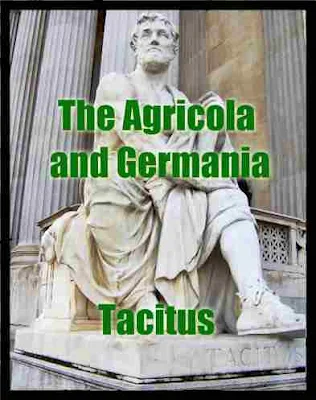Tacitus - the Agricola and Germania
From the translator's preface:
The text from which the following translation has been made is that of the edition of the Agricola and Germania which was brought out by Mr A. J. Church and Mr W. J. Brodribb in 1869. In the one or two cases where I have used a different reading, the reader's attention has been called to it in a footnote.
I have to express my great obligation to the very useful notes appended to their work, as well as to the translation of the two treatises which they published previously.
After I had finished my translation, Dr E. B. Tylor kindly lent me an unpublished version of the Germania of which he had a copy in his possession, and I obtained permission to borrow from it the phrase " these are no boy's lovelocks " in the passage where Tacitus is describing the headdress of the Swabian warriors; the footnotes to it were also useful on various points. In the identification of the numerous peoples and tribes whom Tacitus mentions,
I have almost invariably followed Dr Latham. If his great work on the Germania may be considered to be in some respects a little out of date, on the other hand in it was first suggested, if I am not mistaken, that hypothesis of the European origin of the Aryans which now commends itself so strongly to many scientific men. I may add that the short footnotes which I have ventured to append to some of the names are to be taken as stated in the briefest possible manner such conclusions as I have been able to arrive at.
To have attempted more would have swelled the contents of this little book far beyond the modest limits assigned to it. It makes no pretensions to come into the same class as the last German treatise on the Germania, which extends, so it is said, to over a thousand pages.
A translation of the Agricola appeared anonymously in 1885 from the press of Messrs. Kegan Paul & Co. I had not seen it when I made my version, but I read it afterwards with much pleasure on account of its very spirited style, and I have taken the liberty of borrowing from it one phrase, "in the springtime of her rare promise," where Tacitus is speaking of his betrothal to Agricola's daughter.
Finally, I have to express my sincere and hearty thanks to Mr H. F. Fox of Brasenose, for advice and assistance generously bestowed; to the Headmaster of Bath College, who most kindly gave up several days to the task of going over the whole of the Germania with me; and to Mr A. Godley of Magdalen College, who was good enough to revise the sheets of the Agricola.
Download 7.4 MB


